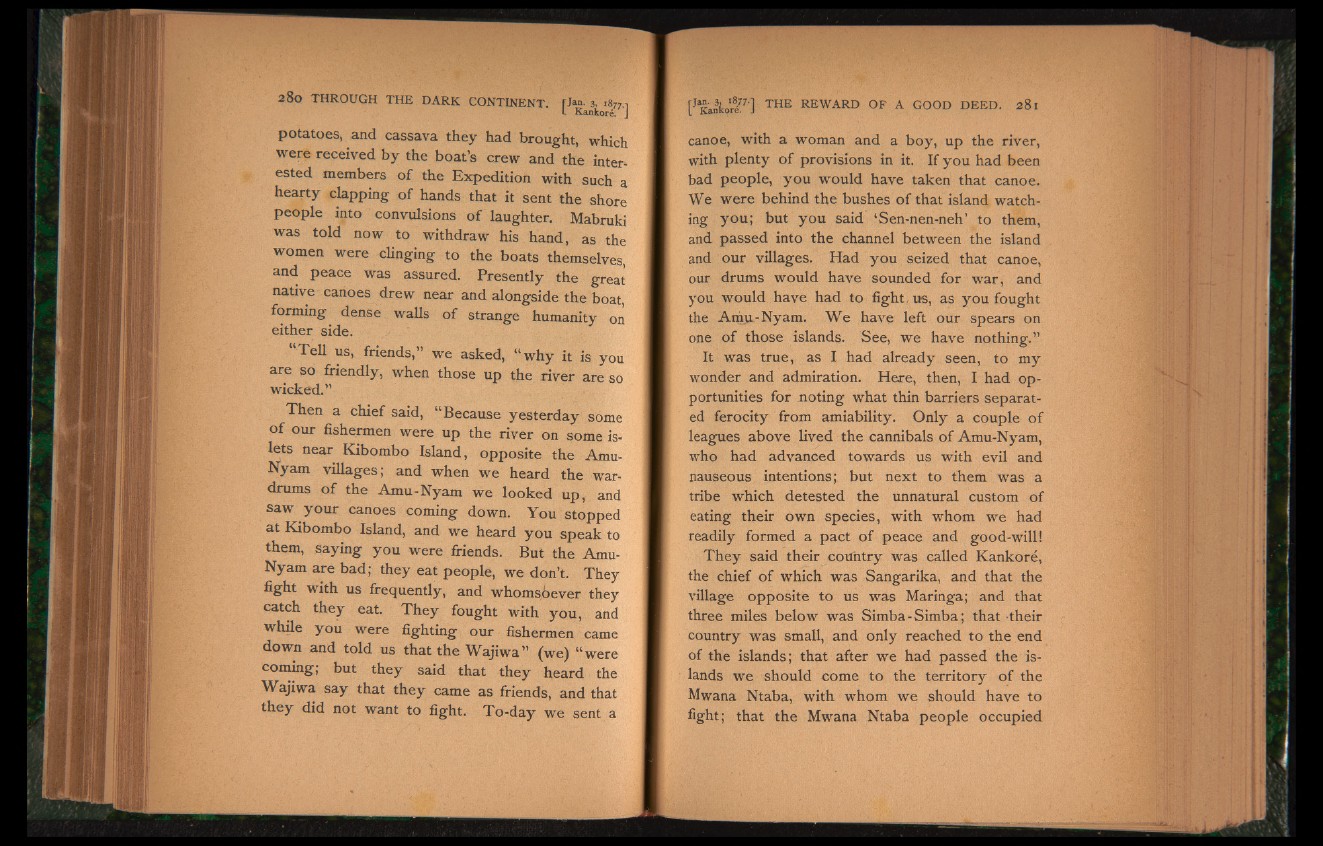
potatoes, and cassava they had brought, which
were received by the boat’s crew and the interested
members of the Expedition with such a
hearty clapping of hands that it sent the shore
people into convulsions of laughter. Mabruki
was told now to withdraw his hand, as the
women were clinging to the boats themselves,
and peace was assured. Presently the great
native canoes drew near and alongside the boat,
forming dense walls of strange humanity on
either side.
“ Tell us, friends,” we asked, “ why it is you
are so friendly, when those up the river are so
wicked.”
Then a chief said, “Because yesterday some
of our fishermen were up the river on some islets
near Kibombo Island, opposite the Amu-
Nyam villages; and when we heard the war-
drums of the Amu-Nyam we looked up, and
saw your canoes coming down. You stopped
at Kibombo Island, and we heard you speak to
them, saying you were friends. But the Amu-
Nyam are bad; they eat people, we don’t. They
fight with us frequently, and whomsoever they
catch they eat. They fought with you, and
while you were fighting our fishermen came
down and told us that the Wajiwa ” (we) “were
coming; but they said that they heard the
Wajiwa say that they came as friends, and that
they did not want to fight. To-day we sent a
[JKankor?7'] THE REWARD OF A GOOD DEED. 281
canoe, with a woman and a boy, up the river,
with plenty of provisions in it. If you had been
bad people, you would have taken that canoe.
We were behind the bushes of that island watching
you; but you said ‘Sen-nen-neh’ to them,
and passed into the channel between the island
and our villages. Had you seized that canoe,
our drums would have sounded for war, and
you would have had to fight, us, as you fought
the Amu-Nyam. We have left our spears on
one of those islands. See, we have nothing.”
It was true, as I had already seen, to my
wonder and admiration. Here, then, I had opportunities
for noting what thin barriers separated
ferocity from amiability. Only a couple of
leagues above lived the cannibals of Amu-Nyam,
who had advanced towards us with evil and
nauseous intentions; but next to them was a
tribe which detested the unnatural custom of
eating their own species, with whom we had
readily formed a pact of peace and good-will!
They said their country was called Kankore,
the chief of which was Sangarika, and that the
village opposite to us was Maringa; and that
three miles below was Simba-Simba; that their
country was small, and only reached to the end
of the islands; that after we had passed the islands
we should come to the territory of the
Mwana Ntaba, with whom we should have to
fight; that the Mwana Ntaba people occupied